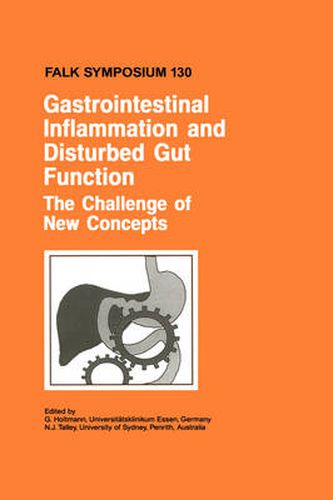Readings Newsletter
Become a Readings Member to make your shopping experience even easier.
Sign in or sign up for free!
You’re not far away from qualifying for FREE standard shipping within Australia
You’ve qualified for FREE standard shipping within Australia
The cart is loading…






This title is printed to order. This book may have been self-published. If so, we cannot guarantee the quality of the content. In the main most books will have gone through the editing process however some may not. We therefore suggest that you be aware of this before ordering this book. If in doubt check either the author or publisher’s details as we are unable to accept any returns unless they are faulty. Please contact us if you have any questions.
In gastrointestinal (GI) practice, a large proportion of patients present with what are currently classified as functional GI complaints. For decades, psychological causes have been implicated in the initiation and maintenance of symptoms. In recent years, disturbances of GI function including sensory motor abnormalities have been catalogued and are now believed to play a key role in the development of symptoms. A genetic predisposition may be important. Furthermore, evidence has accumulated that GI inflammation can trigger and maintains functional disturbances. In particular, acute GI inflammation appears to play a crucial role in at least a subgroup of patients. These observations potentially have profound implications for the field, and suggest that functional GI disorders are indeed organic diseases. This volume, the proceedings of Falk Symposium 130 on Gastrointestinal Inflammation and Disturbed Gut Function: The Challenge of New Concepts , held in Freiburg, Germany, on October 4-6, 2002 (Part I of the Gastroenterology Week Freiburg 2002), reviews work in the field and should stimulate research in the functional GI disorders, from the bench to the bedside. Basic scientists, clinical researchers and clinicians interested in this field explore controversial and exciting areas of research, and consider targets for future therapeutic interventions.
$9.00 standard shipping within Australia
FREE standard shipping within Australia for orders over $100.00
Express & International shipping calculated at checkout
This title is printed to order. This book may have been self-published. If so, we cannot guarantee the quality of the content. In the main most books will have gone through the editing process however some may not. We therefore suggest that you be aware of this before ordering this book. If in doubt check either the author or publisher’s details as we are unable to accept any returns unless they are faulty. Please contact us if you have any questions.
In gastrointestinal (GI) practice, a large proportion of patients present with what are currently classified as functional GI complaints. For decades, psychological causes have been implicated in the initiation and maintenance of symptoms. In recent years, disturbances of GI function including sensory motor abnormalities have been catalogued and are now believed to play a key role in the development of symptoms. A genetic predisposition may be important. Furthermore, evidence has accumulated that GI inflammation can trigger and maintains functional disturbances. In particular, acute GI inflammation appears to play a crucial role in at least a subgroup of patients. These observations potentially have profound implications for the field, and suggest that functional GI disorders are indeed organic diseases. This volume, the proceedings of Falk Symposium 130 on Gastrointestinal Inflammation and Disturbed Gut Function: The Challenge of New Concepts , held in Freiburg, Germany, on October 4-6, 2002 (Part I of the Gastroenterology Week Freiburg 2002), reviews work in the field and should stimulate research in the functional GI disorders, from the bench to the bedside. Basic scientists, clinical researchers and clinicians interested in this field explore controversial and exciting areas of research, and consider targets for future therapeutic interventions.